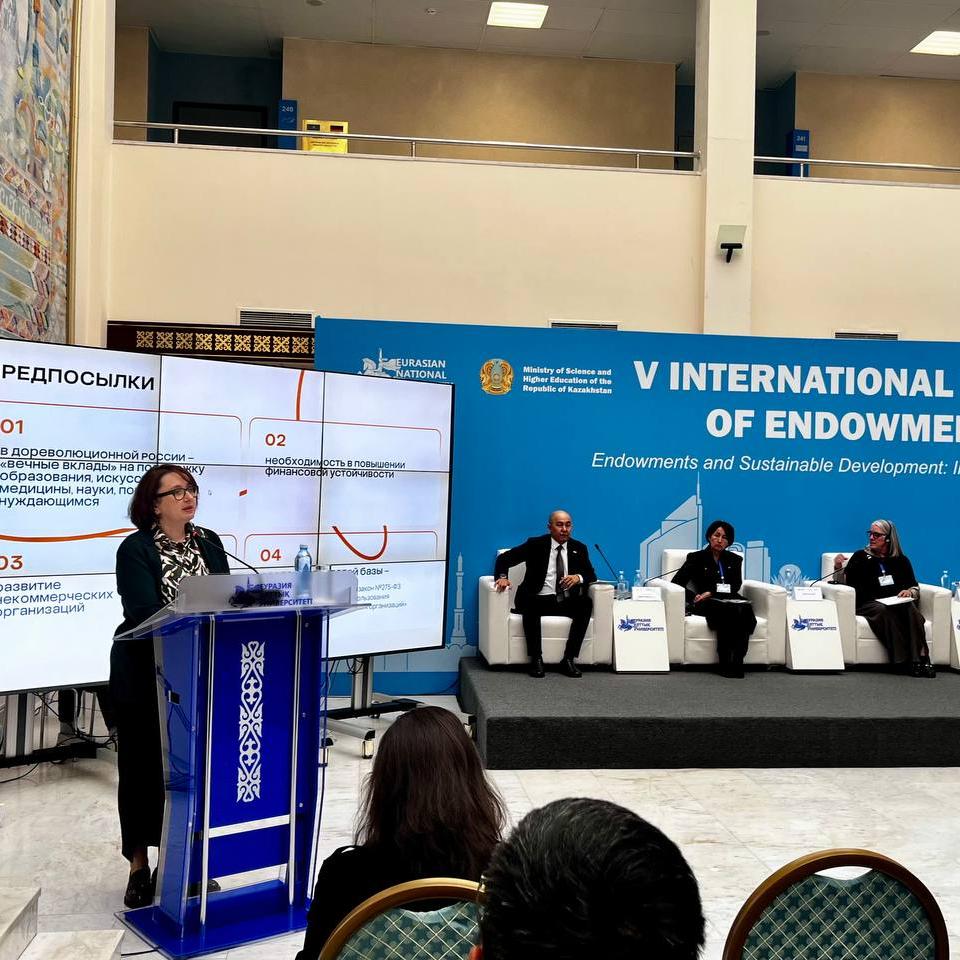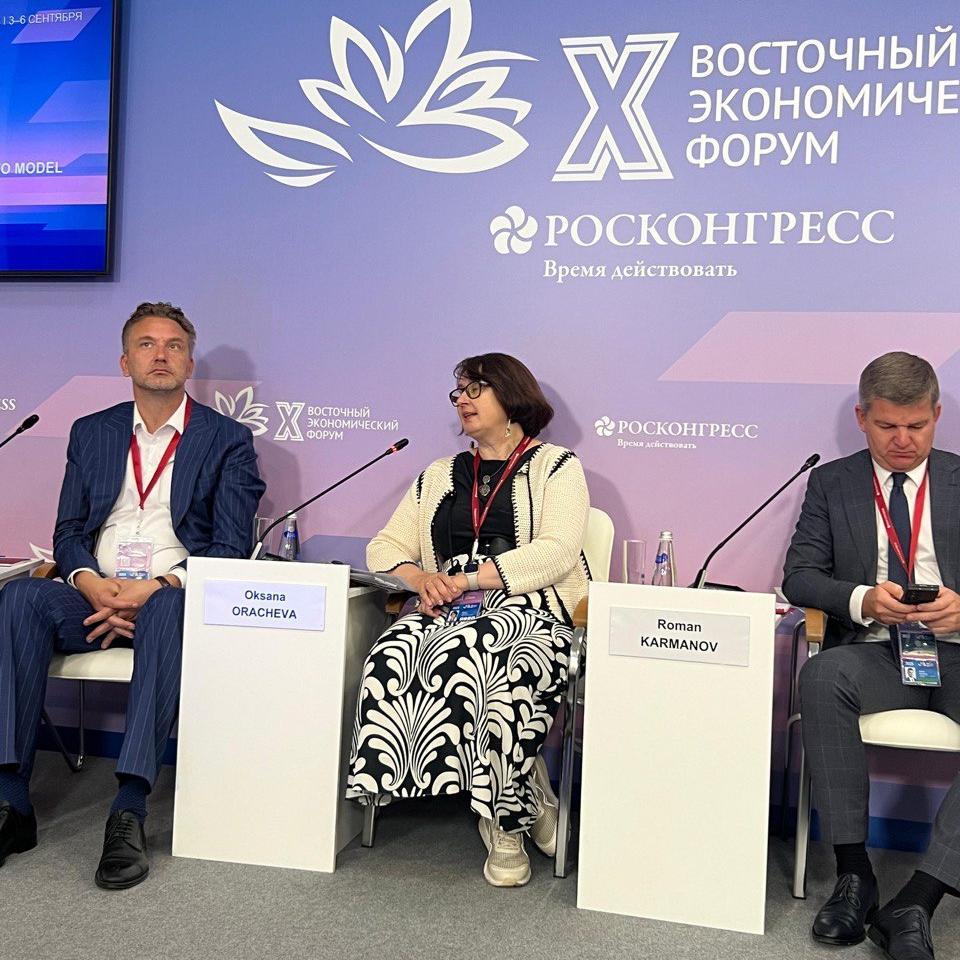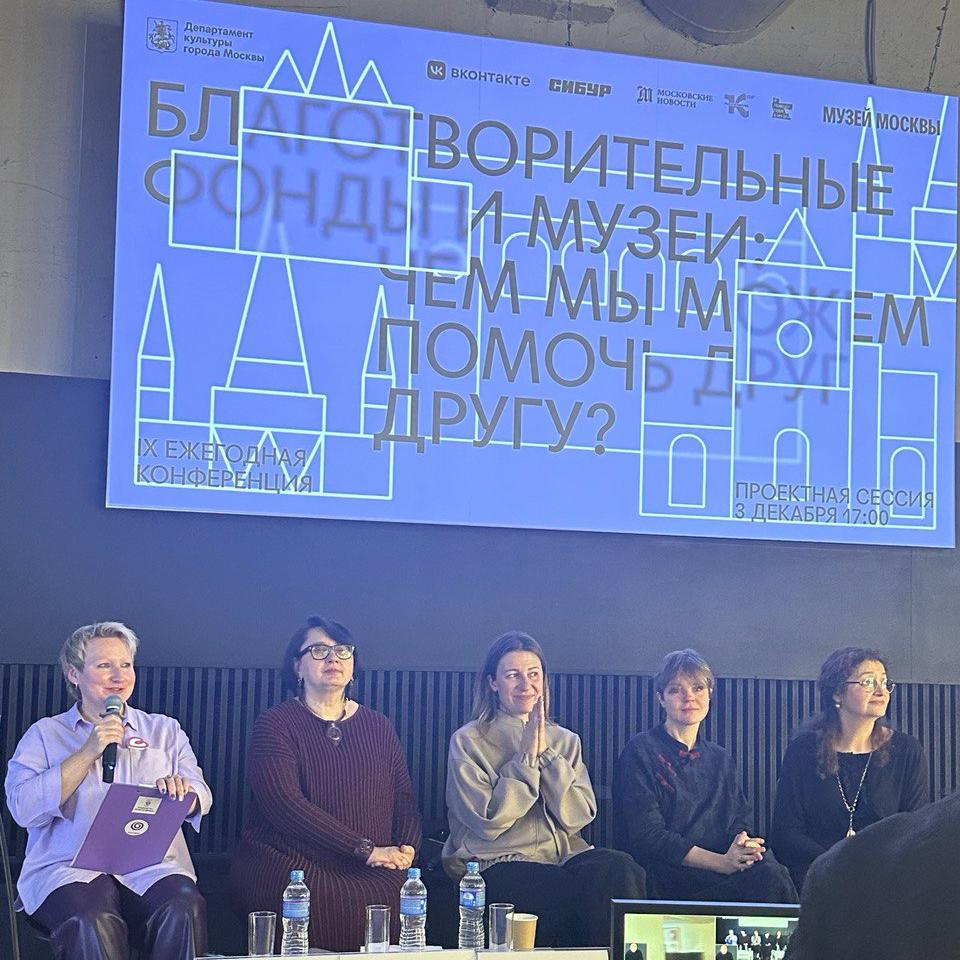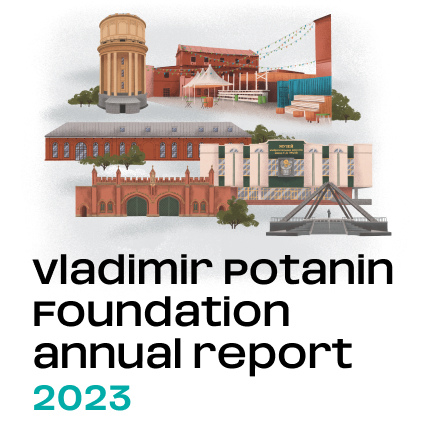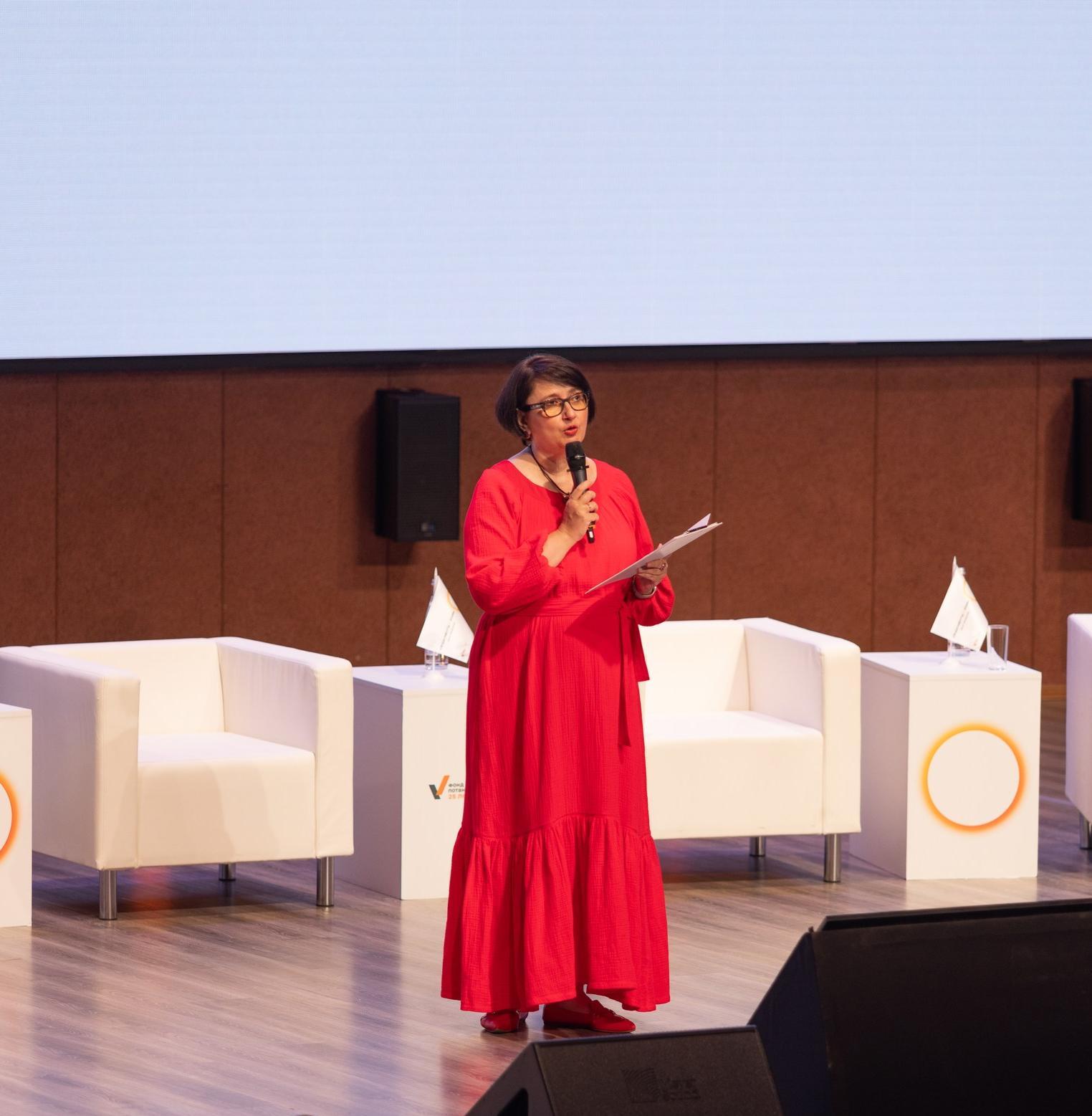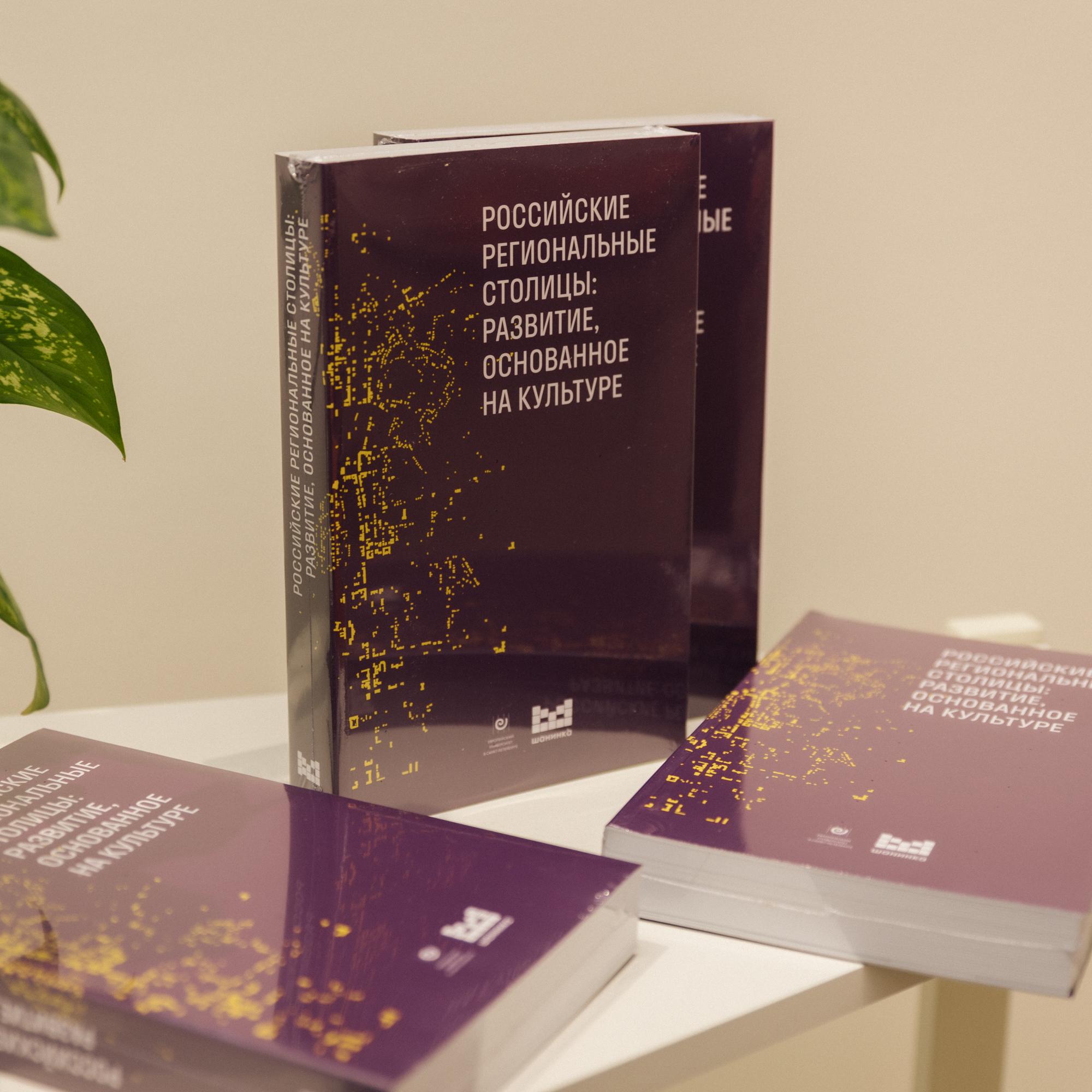The Vladimir Potanin Foundation held a presentation of its Annual Report, summing up the results of the past year. The guests of the meeting included program participants, partners, experts, representatives of the non-profit sector, and the museum and educational communities. The central theme of the discussion was strengthening living and sustainable connections between people, organizations, and territories with which the Foundation works.
Over the past year, the Foundation continued its systematic work to support education, culture, and the social sphere. Ten competitions were held; more than 1,500 people took part in the Foundation’s events; 190 students and teachers volunteered in protected areas within the framework of the Foundation School; and more than 170 community meetups were held in both offline and online formats.
Oksana Oracheva, General Director of the Foundation, noted that the anniversary year 2024 became an important milestone and a growth point for the organization — a year that opened new opportunities for program development and community expansion.
We are about living connections. It is very important for us that interaction takes place between different people fr om different regions, from different fields, so that our community develops, so that museum employees, teachers, volunteers, and people providing social assistance can communicate with each other,
- said Oksana Oracheva.
Last year`s focus was on strengthening work with the community and program participants in the regions, developing intellectual and practical volunteering within the framework of the Foundation School, and introducing new formats, including research on the role of AI in education.
For the Foundation, it is especially important to see real social changes behind the figures in the report — in the lives of people, communities, and the sectors with which the Foundation works. Therefore, during the presentation, program participants — volunteers, partners, and project team leaders — shared their own initiatives and how the Foundation’s support helped bring their ideas to life.
Vera Abrosimova, a graduate student and Foundation scholarship holder, spoke about her journey from volunteer to camp leader in the Foundation School. She emphasized that participating in the Foundation’s volunteer programs is not only a contribution to the preservation of nature and cultural heritage, but also the creation of sustainable social connections that continue even after the volunteer shifts end.
Alla Orlova, curator of inclusive projects at the Tretyakov Gallery, presented the results of the gallery’s work in inclusive practices within the framework of the Friendly Museum project supported by the Foundation. According to her, in the very first year, the inclusive space became a center of attraction for children and adults with various health conditions. Museum exhibitions are now accompanied by adaptive labels and audio descriptions, making art truly accessible to everyone. She also emphasized that Friendly Museum became an example of how cultural institutions can change visitors’ attitudes toward inclusion.
Elizaveta Oleskina, Director of the Starost v radost (Joy in Old Age) Foundation, shared her experience in creating the Knowledge Hub for the development of Care Schools. She noted that with the support of the Foundation, the team managed to reach a new level of organizing assistance — from formal reports on the work of care schools to real systemic support for families. In her opinion, the creation of communities of relatives of elderly people, wh ere they can receive not only practical help but also emotional support, has become especially significant.
Egor Lebedev, General Director of Special Olympics Russia, spoke about how, with the support of the Foundation, the inclusive sports program of Special Olympics Russia was strengthened. Over three years of the program’s implementation, more than 2,400 coaches were trained, and in 2024 alone, more than 10,000 new participants joined the project. He noted that inclusive sports have a profound impact on the family institution: children discover new horizons, and parents have the opportunity to see and appreciate their achievements in a new way. In addition, interaction between children with disabilities and their neurotypical peers helps form a culture of inclusion from an early age.
Yulia Grozovskaya, Director of Strategic Communications at the Vladimir Potanin Foundation, emphasized that the Foundation's focus always remains on people and the real changes that take place thanks to their efforts. According to her, the Foundation’s projects are aimed at ensuring that behind every figure in the report there is a story, and behind every result there is a real action. The presented the book Sustainable Connections. became a way to show how program participants are shaping a culture of engagement, trust, and mutual assistance.
At the end of the meeting, participants and viewers of the online broadcast asked speakers questions. They discussed the support of regional initiatives, the development of Knowledge Hubs, participation in volunteer programs, and opportunities for cross-sector cooperation. The questions and feedback confirmed that the topic of sustainable connections resonated strongly with the audience and that the unity of people sharing similar values makes it possible to achieve sustainable and meaningful social changes.
The Foundation also presented the gift edition Sustainable Connections. The book became a continuation of the exhibition of the same name, which premiered in December 2024. It is based on real-life stories of members of the Foundation’s community. Both the exhibition and the book tell about the positive changes that have taken place thanks to them.


